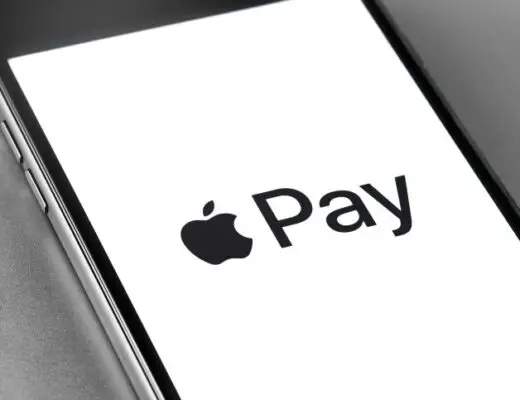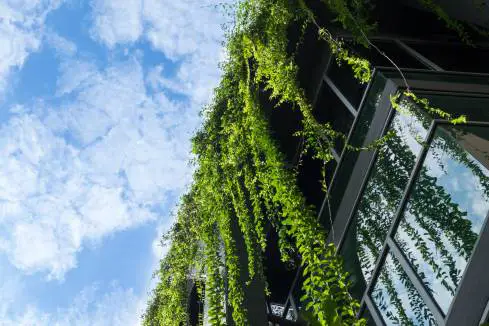
CommonCentsMom.com is advertiser-supported: we may earn compensation from the products and offers mentioned in this article. However, any expressed opinions are our own and aren't influenced by compensation. The contents of the CommonCentsMom.com website, such as text, graphics, images, and other material contained on this site (“Content”) are for informational purposes only. The Content is not intended to be a substitute for professional financial or legal advice. Always seek the advice of your Financial Advisor, CPA and Lawyer with any questions you may have regarding your situation. Never disregard professional advice or delay in seeking it because of something you have read on this website!
Making your home energy efficient is one of the ways you beat the cost of energy.
Improving the systems in your home also allows you to save on the electrical bill and build a modern home that will get you through a tight economy.
To learn more about energy efficiency for your home, you can check utility providers’ websites to find ways to save on energy.
Difference between Energy Conservation and Energy Efficiency
These terms can mean the same thing, but there is a big difference between them. When you conserve energy, you consciously choose to cut out using electricity for a particular process.
Energy efficiency refers to finding ways to use less energy while still using energy for a process as normal.
Tips on Making Your Home Energy Efficient
Suppose you are looking to find ways to make your home much more energy-efficient. Then, follow the tips listed below.
Make sure your home is insulated
A big part of having energy escape the house and running up the bill is that your home might need to be insulated better.
Check for any cracks or gaps in the windows, doors, and walls. You can help keep the heat inside the house by closing these gaps or spaces.
Change traditional light bulbs to LEDS
Traditional light bulbs were not manufactured with energy saving in mind. This is why switching out old light bulbs and replacing them with LEDs is a much better energy-saving option.
LEDs use less energy, and they last much longer as well.
Don’t leave your phone charging all night
It can become a habit to charge your cell phone overnight and only unplug it in the morning. Although modern phones can stop charging once the battery is fully charged, they still draw from the energy current while plugged in.
This wastes electricity as the energy is not being used.
Close taps and don’t waste unnecessary water
When washing hands and brushing teeth, the tap can be closed to avoid unnecessary water wastage. You can fill the sink with water when washing your hands, and when brushing your teeth, you can use a cup to rinse.
Doing so prevents the tap from running continuously while you are busy.
Swap out your desktop for a laptop
Using a desktop can consume more energy than a laptop. This is because a laptop has a rechargeable battery, so it does not need to be plugged in.
It is also important to pull the laptop out of the charger and the charger out of the wall to avoid wasting energy when the laptop is done charging.
Switch off the oven before the food is ready to come out
An oven is an appliance that takes a lot of energy to bake or roast foods. Once the food is almost done, you can switch off the oven to save on energy usage.
The food will still cook/bake but avoids energy wastage when the oven is opened and still on. It is also important not to open the oven until the time is right, as the heat will escape and cause the oven to use more energy to compensate for the lost heat.
Air dryer dishes instead of using the heated dry option on your dishwasher
A dishwasher is a handy appliance, but it can also be an expensive one. To save on energy costs after the dishes are washed. You can let them air dry instead of using the heated dry option of the dishwasher.
Once they are fully air-dried, you can simply pack them away.
Put your fridge on the manufacturer’s recommendation setting
A fridge is another appliance that must be used all day and night to keep your food fresh.
Setting the fridge to a ridiculously high setting can use more energy than is necessary. Fridges work best when full, so keeping your fridge well stocked on the manufacturer’s recommended setting will save money and energy.
Always ensure that the fridge and freezer doors are closed properly to ensure no cool air is escaping, as this will make the appliance work twice as hard to keep the cool air circulating.
Audit your home energy
Getting an energy audit done for your home is necessary to understand which areas of the house are using the most electricity.
This way, you can make the proper changes to see the results in the energy bill.
Throw out old appliances
Sometimes appliances are old but still functioning, so we keep them. However, depending on when the appliance was manufactured, it might be less energy efficient than a modern appliance.
Switching to energy-efficient appliances can lower your home’s energy expenses.
Install a programmable thermostat
Doing so is a more effective way of managing your heating, cooling, and ventilation system. With a programmable thermostat, you can set a consistent temperature, resulting in energy savings. You can program your thermostat to stay on the same setting all the time, saving energy.
Changing the setting of your thermostat will not necessarily improve the heating or cooling. It just makes the thermostat use more energy.
Wrap the water heater
Electrical heaters can lose heat if the taps are used and the tank is filled with cold water that needs to be heated.
You can insulate the water by wrapping a blanket around it to stay warmer for longer.
Use ceiling fans instead of an air conditioning system
A ceiling fan uses less energy instead of switching on an air conditioning system, but it provides the same results.
Use a clothesline instead of a dryer
Doing your washing on a hot day and hanging it outside will save more energy than putting it in the dryer. This way, you will use the natural heat resource and not pay a cent.
Clean large appliances for dust build-up
Appliances such as fridges, dishwashers and stoves can all work extra hard if there is a dust build-up. Be sure to check and clean these large appliances’ backs to prevent blockage.
Saving money when warming your pool
You may be confused with regards to your decision as to whether pool heaters that use an element or heat pumps that use the surrounding air to heat the water would be the better choice when it comes to energy efficiency for heating your pool.
Conclusion
Using the above-mentioned tips can help you save on your energy bill.
Be sure to track how much energy your home uses and stay updated on ways to be more energy-efficient and save on the cost of turning on a lightbulb.
For additional cost saving tips at home, be sure to visit https://www.commoncentsmom.com/







